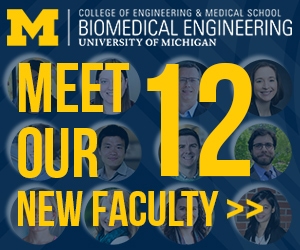
U-M BME Has Welcomed 12 New Core Faculty
U-M BME expands breadth and depth of research

U-M BME expands breadth and depth of research
Since Fall 2022, U-M BME has welcomed 12 new faculty to our community, advancing BME’s research and education missions to the benefit of humanity. “We are delighted to welcome these creative, innovative core faculty to our BME department,” said Mary-Ann Mycek, the William and Valerie Hall Department Chair of Biomedical Engineering and Professor of Biomedical Engineering, “and we look forward to their professional contributions in the future.”
U-M BME is uniquely positioned as a joint department, shared by the College of Engineering and the Medical School, offering faculty and students myriad research opportunities at our globally recognized institution. Meet our 12 new faculty:
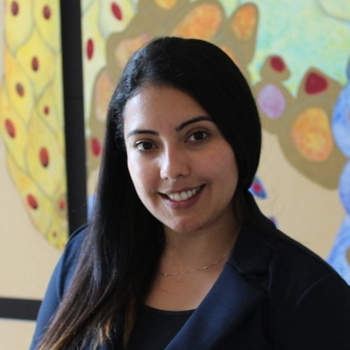
Dr. María Coronel received her BS degree in Biomedical Engineering from the University of Miami, and her PhD in Biomedical Engineering from the University of Florida. She also obtained a certificate in Clinical Translational Research from Emory University Public Health School. She finished her postdoctoral fellowship at the Georgia Institute of Technology, where she received funding from the Juvenile Diabetes Research Foundation, NIH T31, and Georgia CTSA to support her training.
Her research group focuses on synergizing concepts of biomaterials, tissue engineering, drug delivery and immunoengineering to create synthetic bioactive therapeutics for the treatment of autoimmunity, inflammation and cancer.

Dr. Anne Draelos first studied physics and computer science as an undergraduate at North Carolina State University. She completed a Master’s in Electrical & Computer Engineering and a PhD in physics at Duke University, focused on the interplay between various quantum phenomena in networked systems. She then cross-trained as a postdoctoral fellow in neuroscience to study arguably the most complex network around: the brain.
Now at U-M BME as faculty, her lab is focused on machine learning and statistical techniques to facilitate real-time analysis of high-dimensional neural and behavioral data. Dr. Draelos currently holds a Career Award at the Scientific Interface from the Burroughs Wellcome Fund.

Dr. Jonathan Fay received his BS from the University of Notre Dame and his MS and PhD degrees from Stanford University. His research interests focus on how educational interventions and social networks influence the entrepreneurial mindset and subsequent technology diffusion and commercialization. His lab studies the interplay of how social networks, technology advancements, and business practices lead to the adoption of certain technologies but not others. Most previous research has focused on the attributes of the individual innovators or the technology itself and tries to assess which factors are most important for driving adoption. However, the history of innovation is littered with examples of chance meetings, disparate ideas coming together, and of nearly simultaneous invention by several groups.
Future research will explore the development of high trust social networks, how that impacts the success of innovators and how that influences the diversity of innovators as well as the effectiveness of interventions to address these issues.

Dr. Paul Jensen was previously an assistant professor at the University of Illinois at Urbana-Champaign and earned bachelor’s degrees in chemical and biomedical engineering from the University of Minnesota and a PhD in biomedical engineering from the University of Virginia. He completed a postdoctoral research fellowship in the Biology Department at Boston College.
His research group studies the oral microbiome using artificial intelligence, laboratory automation, and high-throughput genomics. Dr. Jensen is also interested in educational barriers to careers in artificial intelligence. He serves as co-founder and scientific advisor for Cerillo, LLC, maker of laboratory instrumentation with the biological researcher in mind.
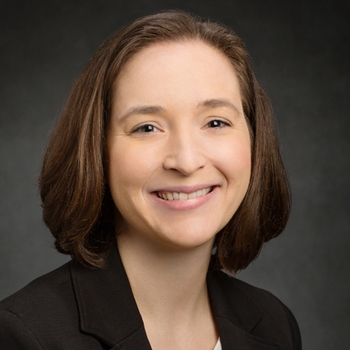
Dr. Karin Jensen comes to us from the University of Illinois at Urbana-Champaign and earned a bachelor’s degree in biological engineering from Cornell University and a PhD in biomedical engineering from the University of Virginia. Her doctoral dissertation focuses on “Systems pharmacology of cell-signaling networks in human disease.”
Her research interests include student mental health and wellness, engineering student career pathways, and engagement of engineering faculty in engineering education research. She was awarded a CAREER award from the National Science Foundation for her research on undergraduate mental health in engineering programs. She serves as an associate editor of the Journal of Women and Minorities in Science and Engineering.
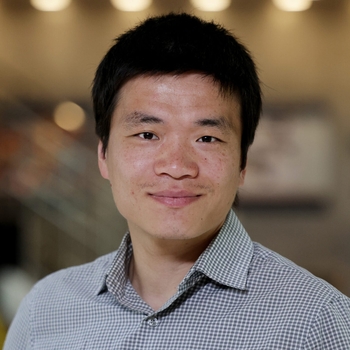
Dr. Jiahe Li was an assistant professor at Northeastern University’s bioengineering department before coming to U-M BME. He completed his BS in Microbiology at China Agricultural University, Beijing, China and received his Ph.D. in Biomedical Engineering from Cornell University. Dr. Li completed his postdoctoral research at the Massachusetts Institute of Technology as a David Koch Quinquennial Postdoctoral Fellow in the Koch Institute for Integrative Cancer Research. He is a recipient of the CDMRP Discovery Award (2019), NIBIB Trailblazer Award (2021), CDMRP Cancer Idea Award (2021), NSF CAREER Award (2023) and NIH Director’s New Innovator Award (2023).
The Li research group focuses on the development of molecular and live cell-based therapeutics, with a major emphasis on the use of bioconjugation chemistry, synthetic biology, and microbiology to interrogate and manipulate interactions between therapeutics, the microbiome and host. Since starting as an assistant professor in 2019, his group has published 17 papers and filed three patents. Two inventions in his lab have led to sponsored research agreements with biotech companies to accelerate the bacterial engineering technologies for commercialization.
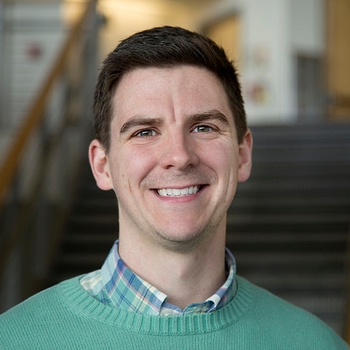
Dr. Aaron Morris completed a BS in BME at Georgia Tech, followed by a PhD in BME from Yale University. As a postdoctoral fellow, Dr. Morris worked with Dr. Lonnie Shea at the University of Michigan to use biomaterials to interrogate the immune system during autoimmunity and with Dr. Joshua Leonard at Northwestern University to build synthetic, modular receptor systems for synthetic biology platforms. Dr. Morris’s work has been supported through a number of mechanisms, including the NIH K99/R00, NSF GRFP, NIH T32, Michigan Life Sciences Institute Fellows program, and a Michigan Precision Health grant, and a TED Fellowship (check out his TED talk here). He has also received a 2023 DARPA Young Faculty Award from the Defense Advanced Research Projects Agency.
Dr. Morris heads the PRecision Immune MicroEnvironments (PRIME) Lab, which works at the intersection of biomaterials engineering, immunology, and drug delivery. The PRIME lab focuses on using engineered materials as platforms to: study immunology, diagnose disease, and develop therapeutics. They are interested in the interface between materials and living systems, and their long-term vision is to develop non-invasive systems for monitoring and manipulating immunity within tissues.
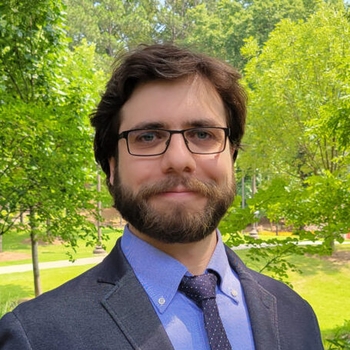
Dr. Enrico Opri completed his BS and MS degrees in biomedical engineering at Politecnico di Milano and his MS and PhD degrees in biomedical engineering at University of Florida. He completed his postdoctoral fellowship at Emory University in the Neurology Department. His work has been supported by the APDA postdoctoral fellowship, NIH Udall Pilot, NIH T32, and MNI-BI 2022 Neuroregeneration and Cognition.
His lab focuses on the exploration of the neurophysiological activity in the basal ganglia-thalamocortical circuits in humans affected by neurological disorders (such as Parkinson’s, Tourette’s, Essential Tremor, Epilepsy), while investigating how neuromodulation (e.g. Deep Brain Stimulation, cortical stimulation mapping) alters these networks to bring a therapeutic benefit. His lab aims to identify neurological biomarkers that can be leveraged to strengthen the current clinical procedures employed for the treatment of neurological disorders, including advancements in closed-loop neurostimulation.
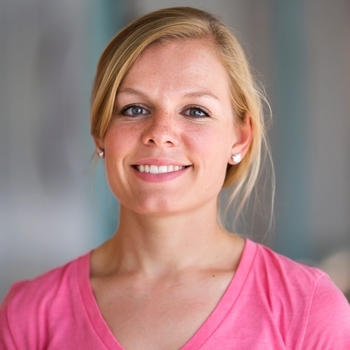
Dr. Kathleen Panagis has a BS in Bioelectrical Engineering from Marquette University and MS and PhD degrees in Biomedical Engineering from U-M. Her previous roles at Michigan include a postdoctoral research fellow in the Department of Radiology and a Lecturer I in Biomedical Engineering. Dr. Panagis’ research background is in quantitative magnetic resonance imaging (MRI). As a Lecturer, she will focus on teaching courses in bioelectronics and engineering design.
Dr. Panagis strives to make engineering courses approachable and welcoming. She uses active learning strategies in the classroom and encourages students to develop problem-solving skills and an engineering mindset.
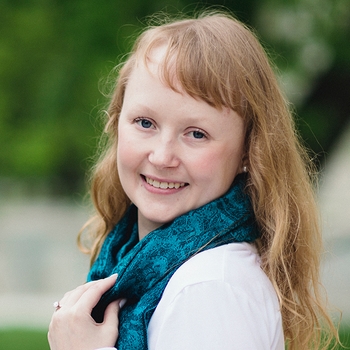
Dr. Piotrowski-Daspit has an SB in Chemical-Biological Engineering and Biology from the Massachusetts Institute of Technology (MIT) and master’s and PhD degrees in Chemical and Biological Engineering from Princeton University. She also trained as a Postdoctoral Fellow in Biomedical Engineering at Yale University.
Her laboratory will focus on engineering polymeric nanoparticles for nucleic acid delivery to the lungs, taking advantage of combinatorial polymer vehicle libraries, high-throughput in vivo screening tools, and three-dimensional cell culture models that recapitulate disease physiology. The goal is to elucidate the structure-function relationships that drive the interactions between nanomedicines and the biological barriers they encounter when administered in vivo at the organism, tissue, and cell levels. Ultimately, this work will contribute to the rational design of delivery vehicles for specific disease targets and aid in the clinical translation of therapeutics. The technology-driven approach will be applicable to the treatment of many hereditary diseases, with an initial focus on cystic fibrosis (CF).
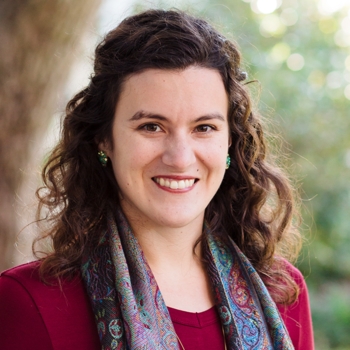
Alison S. Vander Roest is an assistant professor in Biomedical Engineering at the University of Michigan (starting in 2023) with a research focus on cardiac mechanobiology. Dr. Vander Roest is originally from Texas and received degrees in Biomedical Engineering from the University of Virginia and Vanderbilt University. Her postdoctoral work at Stanford University focused on using gene edited stem cell derived cardiomyocytes in micropatterned environments to measure the impact of disease causing mutations. Her K99/R00 funded project will continue in her independent work using multiscale computational modeling approaches to relate cardiac mechanics from the molecular to the cellular/multicellular scale and study the impact of cardiac fibrosis.
Her research interests are in the field of cardiac mechanobiology, seeking to understand how the mechanical environment in the heart influences cell behavior and cardiac function throughout pediatric development and disease. Her lab uses gene-edited human stem cell-derived in vitro systems, and computational models to study disease and potential therapeutics to improve precision medicine.
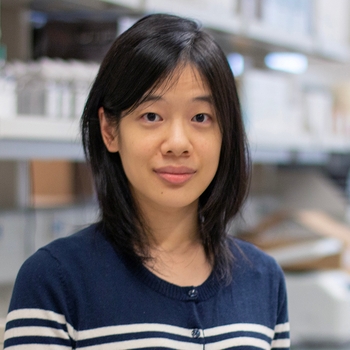
The Wu lab integrates bioanalytical chemistry, materials engineering and biomolecular engineering approaches to develop diagnostic and therapeutic platforms, including engineered multifunctional RNA therapeutics and ultrasensitive single-molecule detection technologies.
Dr. Wu obtained her B.S. in chemical engineering from Yale University and pursued her Ph.D. in chemical engineering at MIT, where she engineered small interfering RNA (siRNA) delivery systems via nucleic acid engineering and polymer chemistry approaches. Following her graduate studies, she transitioned to the diagnostics field for her postdoctoral research at Brigham and Women’s Hospital and the Wyss Institute at Harvard University, where she pioneered ultrasensitive single-molecule protein detection methods and translated these platforms towards the discovery of rare circulating cancer biomarkers. She was the recipient of a National Science Foundation Graduate Research Fellowship, MIT Presidential Fellowship, and NIH Ruth L. Kirschstein F32 Postdoctoral Fellowship during her graduate and postdoctoral training. Dr. Wu is a Biological Sciences Scholar at U-M and is the first joint appointment between the Life Sciences Institute and the College of Engineering.